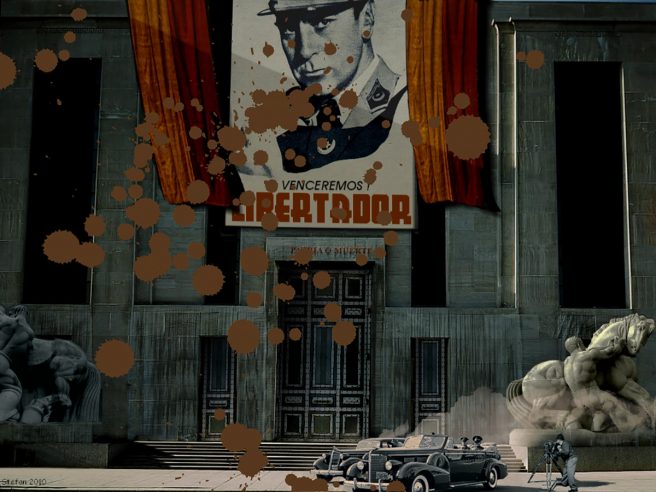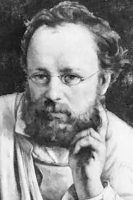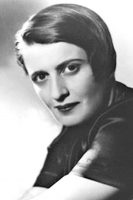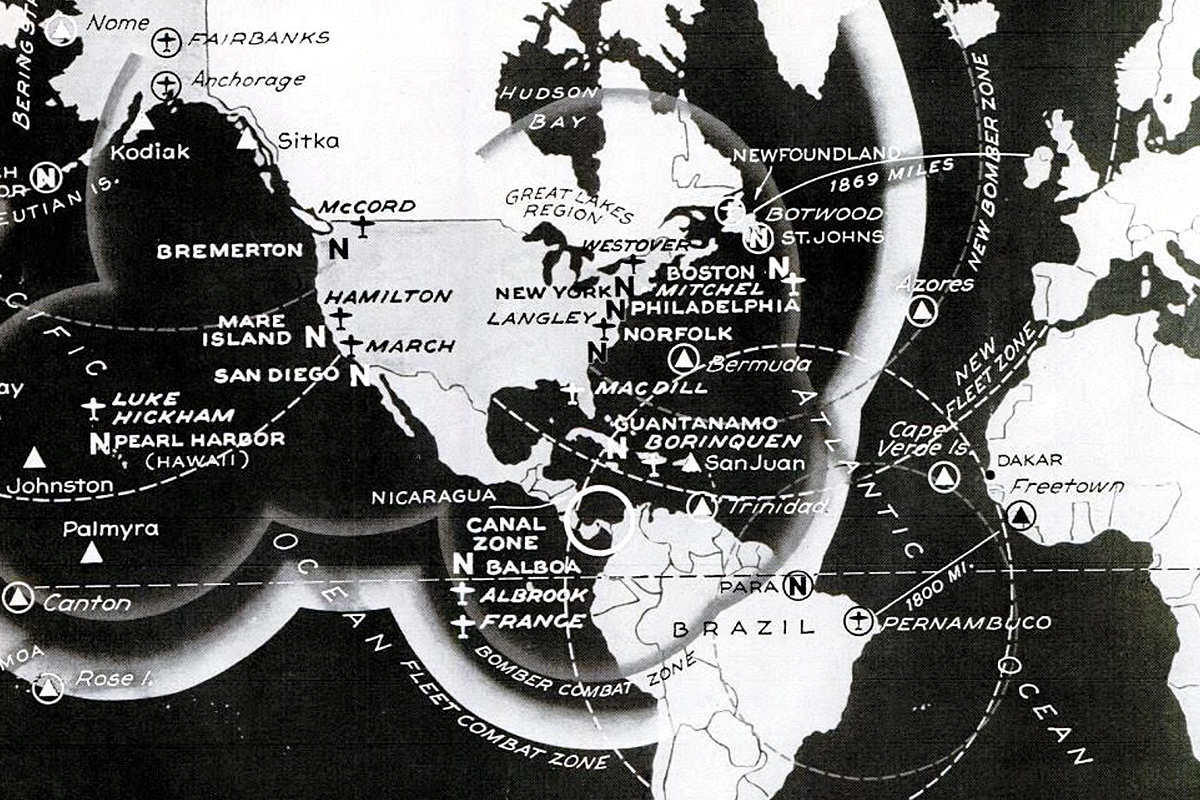
As dieselpunk is gaining popularity and recognition as a genre, dieselpunk enthusiasts are endeavoring beyond the restraints of fiction to frame a dieselpunk aesthetic, a dieselpunk culture and, ultimately, a dieselpunk philosophy.
Does dieselpunk lend itself to make a political statement?
A punk politics
One blog which has proposed that the genre may be political is the amply named Dieselpunk. Its author, Larry Amyett, after admitting that much of the dieselpunk community prefers to think of its hobby as something strictly apolitical, believes that “certain elements inherit in dieselpunk” may allow political or economic notions to be attached to it. He cites the “punk” in dieselpunk and interprets it as a sign of rebellion, “to the degree that it’s often held as derogatory by the establishment.”
If so, then we may be able to say that a dieselpunk politics would have to include, along with the previously mentioned two elements, political trends that are highly critical of the status quo and are not found in the mainstream of that time or today.
The prevailing political philosophies of the dieselpunk era, Amyett writes, were capitalism, communism and fascism. Hayen Mill proposes as an alternative to these visions the philosophy of French anarchist Pierre-Joseph Proudhon (1809-65) who conceived of mutualism.
Mutualism “envisions a society where each person might possess a means of production, either individually or collectively, with trade representing equivalent amounts of labor in the free market.” It rejects state intervention but does require mass collectivization of industries and business.
Beyond anarchism
Anarchism may be interpreted as politically to the left and is therefore easily associated with socialism and similar philosophies, which favor collectivization. This would seem to contradict the independent-minded spirit of dieselpunk.
Jack Rose was early to suggest that the “punk” in dieselpunk should not be understood as promoting anarchy. Instead, he referred to an individualism which “manifests in every aspect of the culture, from the proliferation of sky pirates to the refusal of many individuals to define what, exactly, the fashion is.”
Piecraft, in the third part of his “History of Dieselpunk,” published in the Gatehouse Gazette, sees a similar attitude in dieselpunk fiction and describes the “punk” as “the otherness in juxtaposition to the type of society or world in which the adventure and stories take place.”
There is a strong refusal to abide by custom, convention or, indeed, according to Tome Wilson, webmaster of the Dieselpunks community, historical accuracy.
Dieselpunk enthusiasts don’t hide in the coffins of history, he writes. Rather than confusing the past with the present, the genre fuses the two, building “something new that would be unexpected in any age.”
Yet it’s more than that. “It is not enough to live in the shadow of another generation.” Dieselpunk enthusiasts should not be content with reviving past ideas or inventions. They must have their eyes firmly fixed on the future to “achieve greatness and inspire others to do the same.”
The free Promethean
As a fiercely individualist movement, dieselpunk, politically, may perhaps be described as “anarcho-capitalist.”
Mill suggests this philosophy, besides mutualism, as a possible political philosophy for dieselpunk.
Anarcho-capitalism, in Mill’s words, “advocates the elimination of the state and the elevation of the sovereign individual in a free market.”
It is grounded in the libertarian, capitalist views of economists Friedrich Hayek (1899-1992), Ludwig von Mises (1881-1973) and Murray Rothbard (1926-95) as well as novelist Ayn Rand (1905-82).
It pays tribute, according to Mills, to the dieselpunk era, “when the idea of the businessman as the agent vital to the advancement of society was immortalized by examples of many great industrialists,” which, in turn, reflects the Objectivist notion of man — especially the businessman — as an heroic being. Rand’s Atlas Shrugged (1957) is the ultimate expression of that ideal.
Every dieselpunk is an individual, whether it is an author writing fiction, a designer creating fashion, a maker giving shape to the aesthetic of dieselpunk or an entrepreneur seeking to monetize his passion. The community may bolster his efforts, but he alone is responsible for fulfilling his potential.
This is what Wilson has dubbed the “New Promethean” mindset — and it is a far cry from the paternalism inherent in philosophies which sacrifice man’s dignity in favor of the group.







2 Comments
Add YoursIf we subscribe to Hayen Mill’s point of view, we should proclaim Herbert Hoover the greatest Diesel Era hero – independent, well-educated, energetic, cosmopolitan self-made millionaire, brilliant public administrator, charismatic person, etc. Just one thing spoils the bright picture: Mr. Hoover was unlucky enough to take the President’s office in 1929.
it’s interesting to connect dieselpunk to anarchism, especially when one looks to the capacity enhancement and the autonomizing force of technology, but dieselpunk is specifically a descendent of a centralizing and colonialism-dependent (at least in our history: https://books.google.fr/books/about/Carbon_Democracy.html?id=i7lvDwAAQBAJ&redir_esc=y) form of energy processing and management : most oil production and refinement (as coal before it) developped through state granted monopolies, meaning that trying to give an anarchist read of “diesel”punk is more than contrived, or maybe the entire point of that read would be pointing out the distance between the lives of Iranian oil field workers, british MPs and american civilians.
On that note the mill article unfortunately equates different currents of anarchism into one big whole and assumes CNT spain was run along “anarchist” lines when a more apt descriptor would syndicalist ones : putting power into the hands of a military force that is aligned with a union organization is not “anarchism”, it’s still a monopoly on the use of violence, albeit a fragile one. Added to that is the fact that the entire economy of the CNT controlled portions of spain were organized along anti-individualist collectivist lines (https://theanarchistlibrary.org/library/sam-dolgoff-editor-the-anarchist-collectives) which flies in the face of the black and red propaganda about the conflict, that said pointing this out can’t be a critique of anarchism because anarchism is not a political or economic program but is rather an ethical system. It’s not premised on an a priori set of laws of economics but is moreso an attempt at sketching out how to behave with regards to oneself and others in order to maximize both positive and negative liberty, therefore because economics(how to allocated resources) and politics(how to negociate differing interests) have not been solved and are open areas, anarchism can’t be claimed to have been wed to any specific economic or political tradition, though it necessarily attracts some more than others.
For example if one looks to the american tradition of individualist anarchism in the likes of Spooner, Tucker, Warren and others there’s an immense gap between commitment to socially progressive causes such as individual liberty and the necessity of state collectivisation, in fact the libertarian movement started out specifically within the slavery abolition movement before moving on to different political targets. (https://press.princeton.edu/books/hardcover/9780691155548/the-individualists)
If we then orient our gaze towards questions of energy infrastructure, it follows that an individual-minded anarchism is far more suited to energy grids/infrastructures that favor decentralization than otherwise, as shown in the 1899 book by kropotkin “Fields, Factories, and Workshops” which addresses how electric energy allows for far more decentralized forms of production (individual autonomy centered workshops instead of taylorist factories). Those insights would be picked up and expanded on by many thinkers but the most recent endeavor at looking at individualist anarchist industrial and political economy was kevin carson’s, in his series of books on micromanufacturing and networked production, more specifically his 2010 “Homebrew Industrial Revolution” which uses the technics historian lewis mumford’s models of paleotechnics, eotechnics and neotechnics to look at the paths not taken in our industrial history.